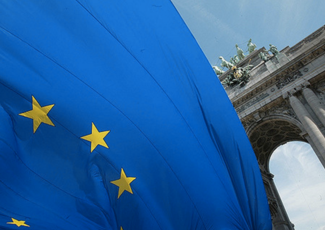The following piece was originally published in Jadaliyya on 18 July, 2016

Three days into 2016, the European border crisis claimed its first victim: a two-year-old boy who drowned off the coast of the Greek island of Agathonisi. Compared with the public outcry that the photos of Aylan Kurdi’s lifeless body on a Turkish beach provoked the previous August, the reaction to the fact that European border policies had killed another innocent toddler was tepid to say the least. While it may be the case that the lack of a tragic image attesting to the fact served to insulate many from the visceral reaction that such stark visual realities often stimulate, it is also true that a broader shift had occurred across Europe in the interim. While there was—and still is—an outpouring of independent civil society initiatives in support of refugees across the continent, the xenophobic far-right perspective on the “refugee crisis” has ultimately proven significantly more influential in the policy and electoral arenas. This influence can perhaps best be seen in the manner in which Germany’s initial open door policy as a model of response eventually gave way to a cynical deal between the European Union (EU) and Turkey. This deal shifted the task of upholding the 1951 Refugee Convention to the unlikely candidate of President Erdogan’s despotic authoritarian regime. Another illustration can be found in the British referendum decision to leave the EU, the outcome of a campaign whose most vocal right wing elements sought to conflate widespread societal grievances and popular political disillusionment with the distinct issues of EU migration and the influx of refugees to Europe.
Meanwhile, however, the European border crisis has anything but dissipated, with the number of those having lost their lives at sea this year now standing at 2,868, meaning that the total number of people that have drowned in the Mediterranean since 2014 has reached above 10,000. The unprecedented scale and urgency of this manufactured human catastrophe stands in stark contrast to the inertia that characterizes the collective European response. This situation reveals that any remaining claims of the universal founding ideals of the European project are now nothing more than a morbidly ironic façade. That the favored approach of restriction and deterrence represents a perversion of these founding ideals is oft pointed out, as is the fact that this approach is demonstrably counter-productive. Yet, it remains the only option that has thus far entered the realm of serious policy consideration. While a lack of consensus across EU member states is the clear surface explanation for this situation, could the present static juncture also have deeper historical and structural roots?
What follows is not intended to be a comprehensive discussion of any of the time periods discussed, but rather, a broad analytical overview of how the relationship between the European continent and human mobility has evolved over time, with a view to tracing the continuities and divergences between Europe’s migratory past and present.Read More »